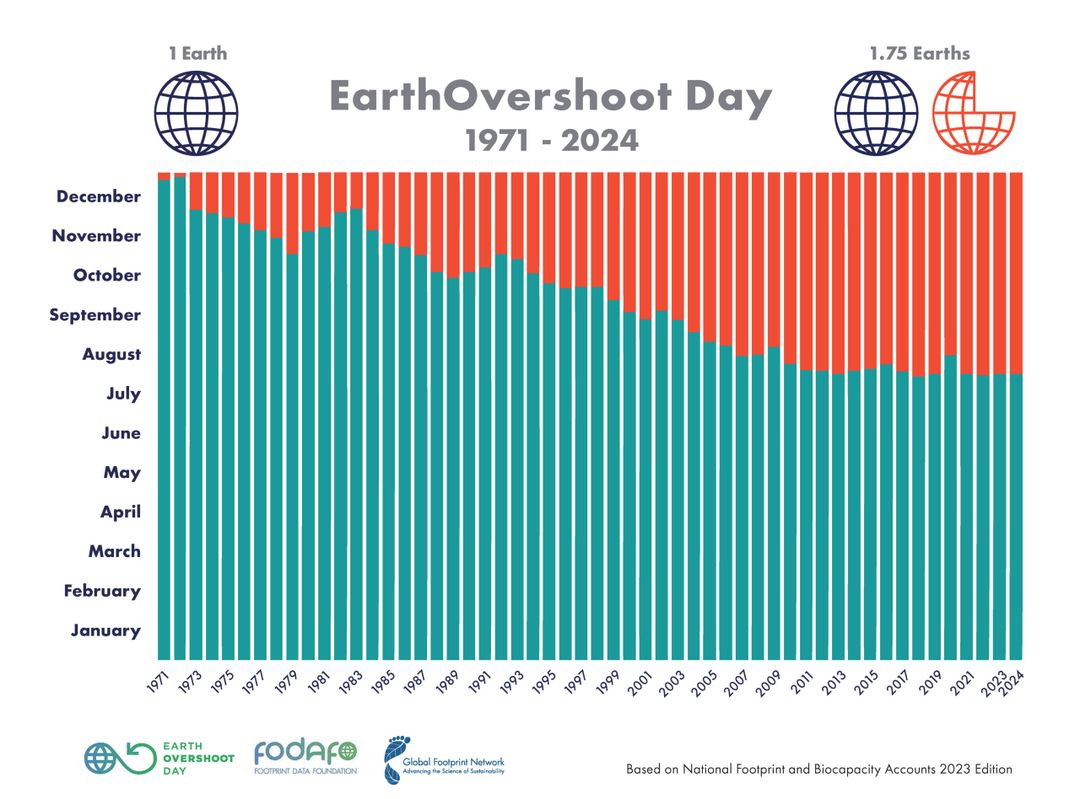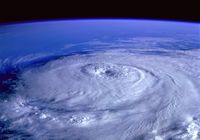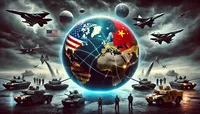Each year, the Earth Overshoot Day draws closer – the day when humanity has used up the natural resources that the planet can regenerate within a year. This day is a sobering benchmark for our ecological footprint and highlights the limits of growth on a finite earth. As the global population grows and resource consumption continues to rise unchecked, the Earth Overshoot Day becomes an increasingly urgent sign of an impending global crisis. The question is no longer whether we are experiencing a planetary crisis, but how we can confront it.
Earth Overshoot Day: The Day We Exhaust Our Planetary Resources 01 August 2024
The Earth Overshoot Day marks the day when humanity has used up Earth's natural resources for a year. 01 August 2024. What does this mean for our future and how does this day influence our global crisis situation?

The Earth Overshoot Day, also known as the Earth Overload Day, marks the point in the year when human demand for ecological resources and services exceeds what the Earth can regenerate in the same year. This day is a clear signal that our current lifestyle is not sustainable. Since the 1970s, when the Earth Overshoot Day was first calculated, the date has been steadily moving forward. In 2023, it already fell at the end of July - an alarming sign for the future of our planet.
The reasons for the continuous advancement of this date are diverse: The growing energy demand, the increasing demand for food, the increasing deforestation and the unchecked expansion of infrastructure massively burden the Earth's ecological capacities. Added to this is the massive CO2 emissions, which further fuel climate change and significantly impair the Earth's ability to absorb CO2. This imbalance has far-reaching consequences - not only for the environment, but also for the global economy and social stability.
The economic consequences of an premature Earth Overshoot Day are severe. The increasing resource shortage drives prices upwards, which hits countries in economically weak regions particularly hard. At the same time, environmental disasters exacerbated by climate change increase global uncertainty and lead to political tensions and social unrest. The risk of conflicts over scarce resources is increasing, and the world economy is exposed to growing instability.
Indicator for general overload
But the Earth Overshoot Day is not just an ecological problem. It is also an indicator of the general overload of planetary boundaries. This exceedance has direct effects on biodiversity, the health of ecosystems and ultimately also on the survival of mankind. While some countries try to reduce their ecological footprints, global trends show that this is not enough to change course. Without drastic measures, the Earth Overshoot Day will move even further forward in the coming years, which increases the likelihood of profound crises.
 @ overshoot.footprintnetwork.org
@ overshoot.footprintnetwork.org
The Earth Overshoot Day serves as a grave reminder that humanity has long overstepped its planetary boundaries. The ecological and economical repercussions of this date are profound, threatening the stability of our global system. As the world community faces increasing pressure from resource scarcity, climate change, and social tensions, it's becoming clear that conventional approaches towards crisis resolution are insufficient. There is an urgent need to develop innovative solutions that not only reduce the ecological strain but also strengthen economic resilience.
Earth Overshoot Day reminds us of how fragile our global system is
In a world that is increasingly shaken by crises, projects like CCTOK provide a novel way to hedge your position. The Crisis Currency Token, tied to the Global Crisis Index (GCI), creates a link between global crises and economic profit. While traditional currencies and investments lose value in times of uncertainty, CCTOK can gain value during crisis periods, thereby offering a financial safety net. Earth Overshoot Day reminds us of how delicate our global system is - CCTOK offers a way to find a stable refuge amidst this uncertainty and secure our own future.




